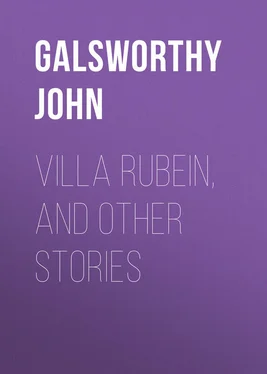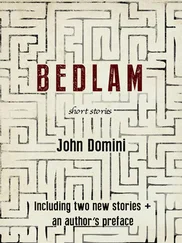John Galsworthy - Villa Rubein, and Other Stories
Здесь есть возможность читать онлайн «John Galsworthy - Villa Rubein, and Other Stories» — ознакомительный отрывок электронной книги совершенно бесплатно, а после прочтения отрывка купить полную версию. В некоторых случаях можно слушать аудио, скачать через торрент в формате fb2 и присутствует краткое содержание. Жанр: foreign_antique, foreign_prose, на английском языке. Описание произведения, (предисловие) а так же отзывы посетителей доступны на портале библиотеки ЛибКат.
- Название:Villa Rubein, and Other Stories
- Автор:
- Жанр:
- Год:неизвестен
- ISBN:нет данных
- Рейтинг книги:3 / 5. Голосов: 1
-
Избранное:Добавить в избранное
- Отзывы:
-
Ваша оценка:
- 60
- 1
- 2
- 3
- 4
- 5
Villa Rubein, and Other Stories: краткое содержание, описание и аннотация
Предлагаем к чтению аннотацию, описание, краткое содержание или предисловие (зависит от того, что написал сам автор книги «Villa Rubein, and Other Stories»). Если вы не нашли необходимую информацию о книге — напишите в комментариях, мы постараемся отыскать её.
Villa Rubein, and Other Stories — читать онлайн ознакомительный отрывок
Ниже представлен текст книги, разбитый по страницам. Система сохранения места последней прочитанной страницы, позволяет с удобством читать онлайн бесплатно книгу «Villa Rubein, and Other Stories», без необходимости каждый раз заново искать на чём Вы остановились. Поставьте закладку, и сможете в любой момент перейти на страницу, на которой закончили чтение.
Интервал:
Закладка:
Suddenly Christian felt Harz cling to her arm.
Glowing and panting she looked at him.
“Giddy!” he murmured: “I dance so badly; but I’ll soon learn.”
Greta clapped her hands: “Every evening we will dance, every evening we will dance.”
Harz looked at Christian; the colour had deepened in her face.
“I’ll show you how they dance in my village, feet upon the ceiling!” And running to Dawney, he said:
“Hold me here! Lift me – so! Now, on – two,” he tried to swing his feet above his head, but, with an “Ouch!” from Dawney, they collapsed, and sat abruptly on the floor. This untimely event brought the evening to an end. Dawney left, escorting Cousin Teresa, and Harz strode home humming The Blue Danube, still feeling Christian’s waist against his arm.
In their room the two girls sat long at the window to cool themselves before undressing.
“Ah!” sighed Greta, “this is the happiest birthday I have had.”
Cristian too thought: ‘I have never been so happy in my life as I have been to-day. I should like every day to be like this!’ And she leant out into the night, to let the air cool her cheeks.
VI
“Chris!” said Greta some days after this, “Miss Naylor danced last evening; I think she shall have a headache to-day. There is my French and my history this morning.”
“Well, I can take them.”
“That is nice; then we can talk. I am sorry about the headache. I shall give her some of my Eau de Cologne.”
Miss Naylor’s headaches after dancing were things on which to calculate. The girls carried their books into the arbour; it was a showery day, and they had to run for shelter through the raindrops and sunlight.
“The French first, Chris!” Greta liked her French, in which she was not far inferior to Christian; the lesson therefore proceeded in an admirable fashion. After one hour exactly by her watch (Mr. Treffry’s birthday present loved and admired at least once every hour) Greta rose.
“Chris, I have not fed my rabbits.”
“Be quick! there’s not much time for history.”
Greta vanished. Christian watched the bright water dripping from the roof; her lips were parted in a smile. She was thinking of something Harz had said the night before. A discussion having been started as to whether average opinion did, or did not, safeguard Society, Harz, after sitting silent, had burst out: “I think one man in earnest is better than twenty half-hearted men who follow tamely; in the end he does Society most good.”
Dawney had answered: “If you had your way there would be no Society.”
“I hate Society because it lives upon the weak.”
“Bah!” Herr Paul chimed in; “the weak goes to the wall; that is as certain as that you and I are here.”
“Let them fall against the wall,” cried Harz; “don’t push them there…”
Greta reappeared, walking pensively in the rain.
“Bino,” she said, sighing, “has eaten too much. I remember now, I did feed them before. Must we do the history, Chris?”
“Of course!”
Greta opened her book, and put a finger in the page. “Herr Harz is very kind to me,” she said. “Yesterday he brought a bird which had come into his studio with a hurt wing; he brought it very gently in his handkerchief – he is very kind, the bird was not even frightened of him. You did not know about that, Chris?”
Chris flushed a little, and said in a hurt voice
“I don’t see what it has to – do with me.”
“No,” assented Greta.
Christian’s colour deepened. “Go on with your history, Greta.”
“Only,” pursued Greta, “that he always tells you all about things, Chris.”
“He doesn’t! How can you say that!”
“I think he does, and it is because you do not make him angry. It is very easy to make him angry; you have only to think differently, and he shall be angry at once.”
“You are a little cat!” said Christian; “it isn’t true, at all. He hates shams, and can’t bear meanness; and it is mean to cover up dislikes and pretend that you agree with people.”
“Papa says that he thinks too much about himself.”
“Father!” began Christian hotly; biting her lips she stopped, and turned her wrathful eyes on Greta.
“You do not always show your dislikes, Chris.”
“I? What has that to do with it? Because one is a coward that doesn’t make it any better, does it?”
“I think that he has a great many dislikes,” murmured Greta.
“I wish you would attend to your own faults, and not pry into other people’s,” and pushing the book aside, Christian gazed in front of her.
Some minutes passed, then Greta leaning over, rubbed a cheek against her shoulder.
“I am very sorry, Chris – I only wanted to be talking. Shall I read some history?”
“Yes,” said Christian coldly.
“Are you angry with me, Chris?”
There was no answer. The lingering raindrops pattered down on the roof. Greta pulled at her sister’s sleeve.
“Look, Chris!” she said. “There is Herr Harz!”
Christian looked up, dropped her eyes again, and said: “Will you go on with the history, Greta?”
Greta sighed.
“Yes, I will – but, oh! Chris, there is the luncheon gong!” and she meekly closed the book.
During the following weeks there was a “sitting” nearly every afternoon. Miss Naylor usually attended them; the little lady was, to a certain extent, carried past objection. She had begun to take an interest in the picture, and to watch the process out of the corner of her eye; in the depths of her dear mind, however, she never quite got used to the vanity and waste of time; her lips would move and her knitting-needles click in suppressed remonstrances.
What Harz did fast he did best; if he had leisure he “saw too much,” loving his work so passionately that he could never tell exactly when to stop. He hated to lay things aside, always thinking: “I can get it better.” Greta was finished, but with Christian, try as he would, he was not satisfied; from day to day her face seemed to him to change, as if her soul were growing.
There were things too in her eyes that he could neither read nor reproduce.
Dawney would often stroll out to them after his daily visit, and lying on the grass, his arms crossed behind his head, and a big cigar between his lips, would gently banter everybody. Tea came at five o’clock, and then Mrs. Decie appeared armed with a magazine or novel, for she was proud of her literary knowledge. The sitting was suspended; Harz, with a cigarette, would move between the table and the picture, drinking his tea, putting a touch in here and there; he never sat down till it was all over for the day. During these “rests” there was talk, usually ending in discussion. Mrs. Decie was happiest in conversations of a literary order, making frequent use of such expressions as: “After all, it produces an illusion – does anything else matter?” “Rather a poseur, is he not?” “A question, that, of temperament,” or “A matter of the definition of words”; and other charming generalities, which sound well, and seem to go far, and are pleasingly irrefutable. Sometimes the discussion turned on Art – on points of colour or technique; whether realism was quite justified; and should we be pre-Raphaelites? When these discussions started, Christian’s eyes would grow bigger and clearer, with a sort of shining reasonableness; as though they were trying to see into the depths. And Harz would stare at them. But the look in those eyes eluded him, as if they had no more meaning than Mrs. Decie’s, which, with their pale, watchful smile, always seemed saying: “Come, let us take a little intellectual exercise.”
Greta, pulling Scruff’s ears, would gaze up at the speakers; when the talk was over, she always shook herself. But if no one came to the “sittings,” there would sometimes be very earnest, quick talk, sometimes long silences.
Читать дальшеИнтервал:
Закладка:
Похожие книги на «Villa Rubein, and Other Stories»
Представляем Вашему вниманию похожие книги на «Villa Rubein, and Other Stories» списком для выбора. Мы отобрали схожую по названию и смыслу литературу в надежде предоставить читателям больше вариантов отыскать новые, интересные, ещё непрочитанные произведения.
Обсуждение, отзывы о книге «Villa Rubein, and Other Stories» и просто собственные мнения читателей. Оставьте ваши комментарии, напишите, что Вы думаете о произведении, его смысле или главных героях. Укажите что конкретно понравилось, а что нет, и почему Вы так считаете.












